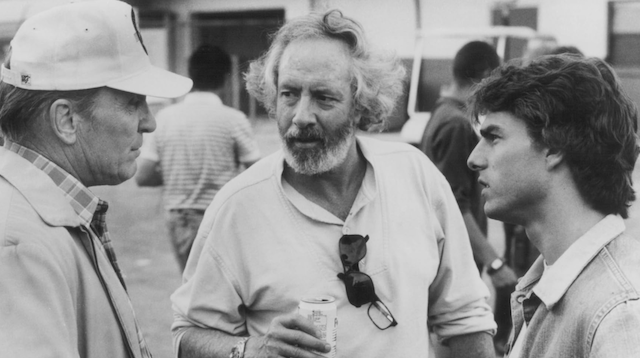
Over a career spanning more than half a century, Towne scripted some of the most iconic films of his generation. His writing went a long way toward crafting the cinematic image of his native Los Angeles as a locus of creativity and possibility as well as intrigue and corruption.
In 2006, he was quoted by an interviewer as saying “It’s a city that’s so illusory. It’s the westernmost west of America. It’s a sort of place of last resort. It’s a place where, in a word, people go to make their dreams come true. And they’re forever disappointed.”
Towne’s original name was Robert Bertram Schwartz. His father, who owned a dress shop that was shuttered during the Great Depresstion, changed the family name to Towne.
Towne won an Academy Award for Chinatown and was also nominated for an Oscar for The Last Detail, Shampoo, and Greystoke. Responding to his passing, Shampoo star Lee Grant posted this tribute on X (formerly Twitter): “His life, like the characters he created, was incisive, iconoclastic and entirely (original).”
Towne, who received a lifetime achievement award in 1997 from the Writers Guild of America, got his start writing for television and low-budget movies for producer Roger Corman. Among the television shows he wrote for in the 1960s were The Man from U.N.C.L.E. and The Lloyd Bridges Show.
He transitioned into film through his friendship with actor Warren Beatty, to whom he was introduced by his psychiatrist. Beatty asked Towne to help revise the script for Bonnie and Clyde, which had originally been written by Robert Benton and David Newman.
As a ghostwriter, Towne’s contributions to the script often went uncredited. Describing himself as “a relief pitcher who could come in for an inning, not pitch the whole game,” Towne also contributed his talents to other films of the era, including The Godfather, Heaven Can Wait, and The Parallax View.
But it was his work on Roman Polanski’s 1974 film Chinatown that elevated Towne to iconic status in Hollywood. Influenced by the fiction of Raymond Chandler, Towne brought a noir sensibility to the project, a detective story set in the Los Angeles of the 1930s, one that famously ended with the words as suggested by Polanski, “Forget it, Jake, it’s Chinatown.”
In a 2009 interview, Towne said his vision for the film was largely influenced by Carey McWilliams’s 1946 book Southern California: An Island on the Land. “Instead of a jewel-encrusted falcon, make it something as prevalent as water faucets, and make a conspiracy out of that,” Towne said. “And after reading about what they were doing, dumping water and starving the farmers out of their land, I realized the visual and dramatic possibilities were enormous.”
In 1990, Towne penned the script for Days of Thunder, a race-car epic starring Tom Cruise and Robert Duvall. It included another memorable quotation, when Duvall says to Cruise, “He didn’t slam into you, he didn’t bump you, he didn’t nudge you. He rubbed you. And rubbin’, son, is racin’.’”
Towne also worked on Cruise’s The Firm as well as his the first two Mission: Impossible movies. Most recently, he scripted Ask the Dust, another Los Angeles film that debuted in 2006. Robert Towne is survived by his second wife, Luisa Gaule and their two daughters, as well as his brother.

